At ICJS, community & nonprofit leaders who are working for social justice can seek to understand how the religious diversity of our communities is an asset that can anchor Baltimore’s health and growth.
For Community & Nonprofit Leaders
Justice Leaders Fellowship Encounters Difference
The ICJS Justice Leaders Fellowship is a 10-month intensive program for local community, nonprofit, and civic leaders to study and dialogue together. The fellowship draws on the rich resources of diverse religious traditions to inform and inspire a more just Baltimore and to discover how religious pluralism is key to a democratic society.
Fellows come from diverse religious backgrounds and demonstrate success and leadership in a wide variety of fields, including advocacy, arts, public and mental health, nonprofit leadership, government, and entrepreneurship.
Justice Leader Fellows are committed to increasing interreligious understanding and cooperation to consider contemporary issues of justice through the lenses of Islamic, Christian, and Jewish teachings and traditions. Fellows work with each other and ICJS scholars to investigate justice issues.
The program is directed by Fatimah Fanusie, Ph.D., Program Director, Justice Leaders.
Please contact Fatimah Fanusie for more information at fanusie@icjs.org
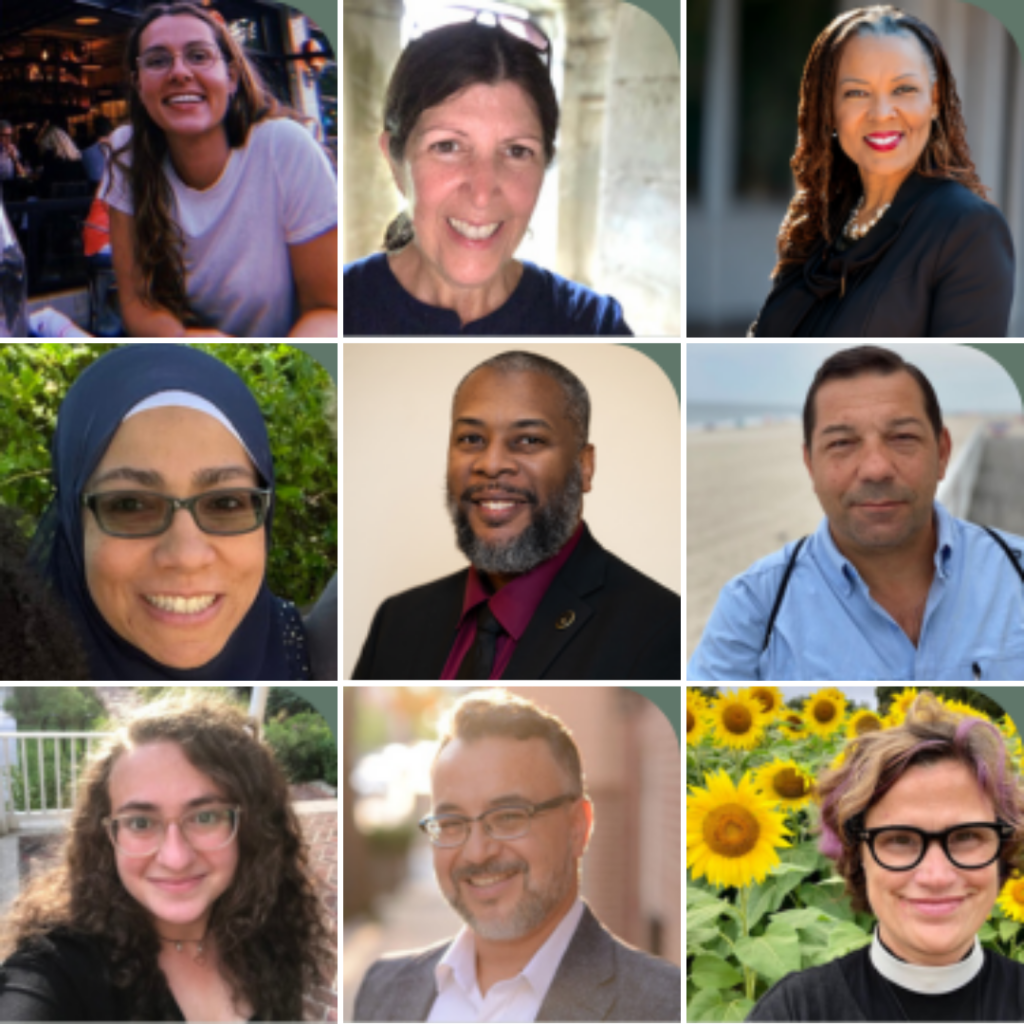
Benefits
- Exploration of how interreligious tools can be applied to your own justice work
- Relationship-building among cohort of community leaders
- Access to a rich network of Justice Leaders alumni
- Increased interreligious literacy
- Stipend
Commitments
- 10 monthly meetings (Oct. 2023 to June 2024)
- 1 reflection essay or video (published at icjs.org)
- Small group project
Justice Leader Fellowship Rosters
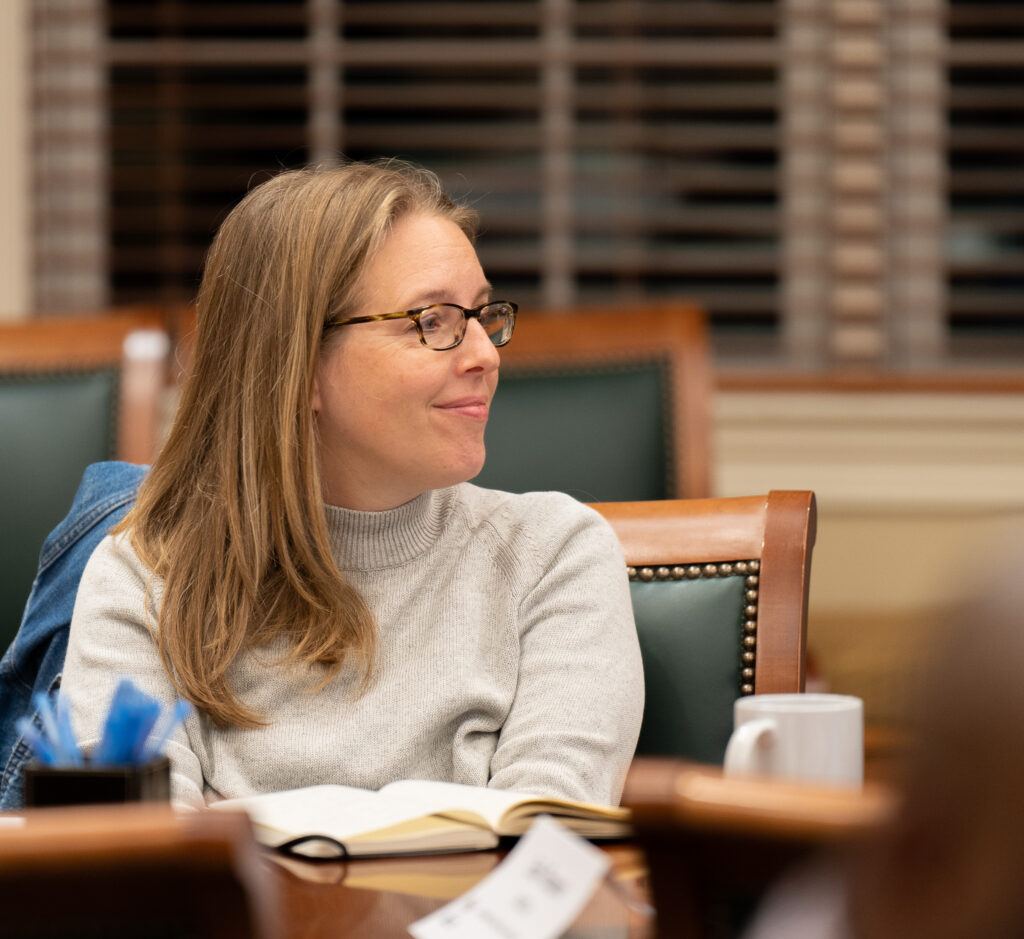
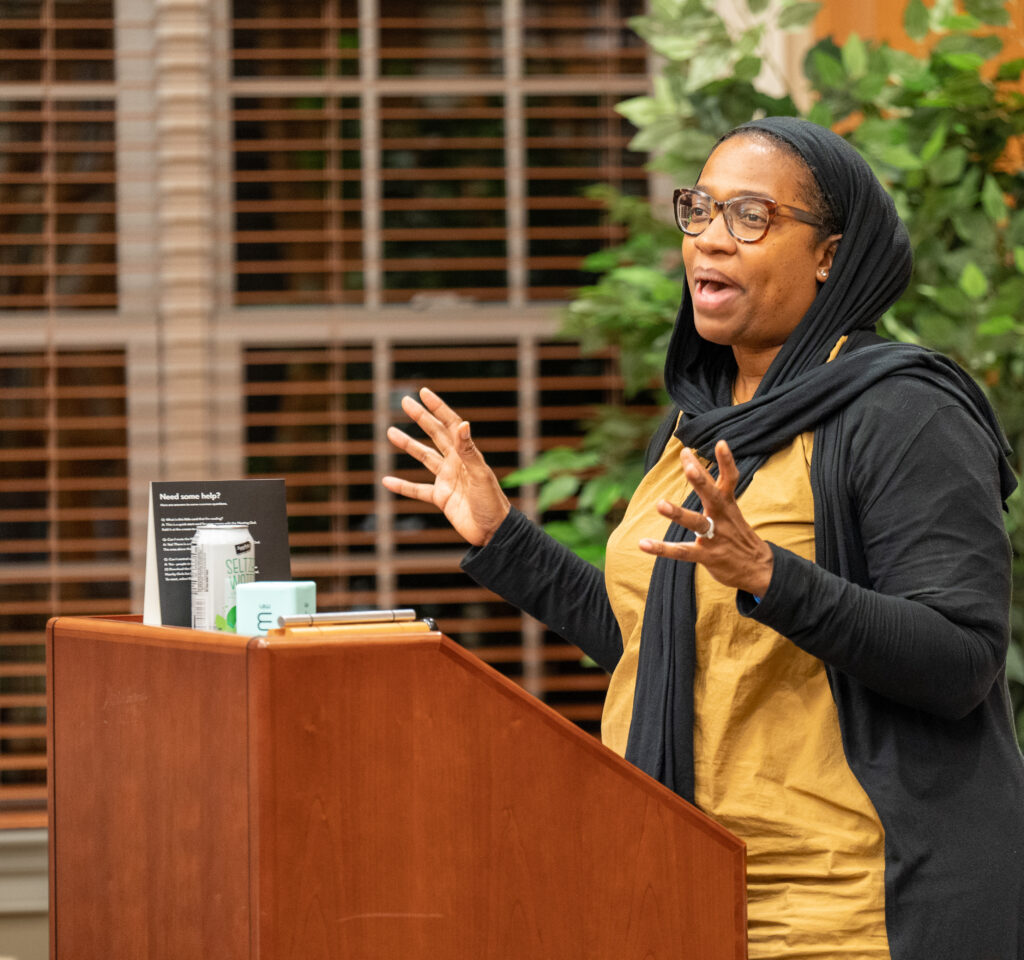
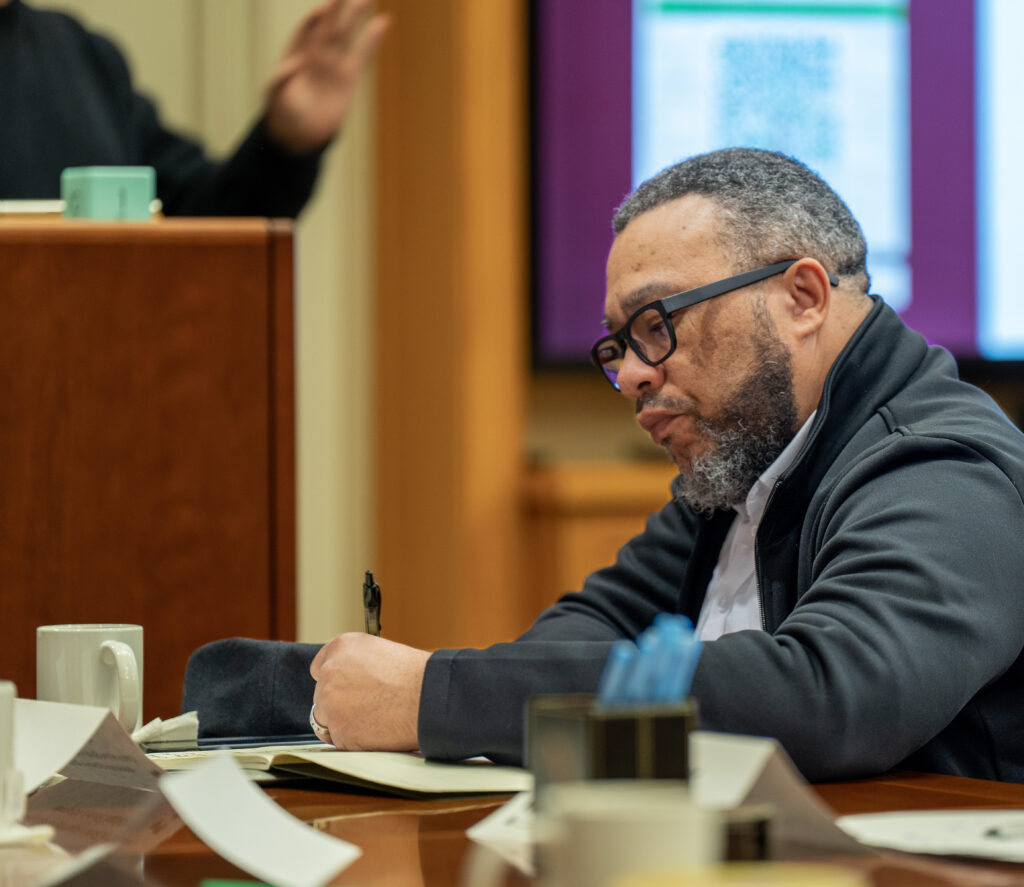
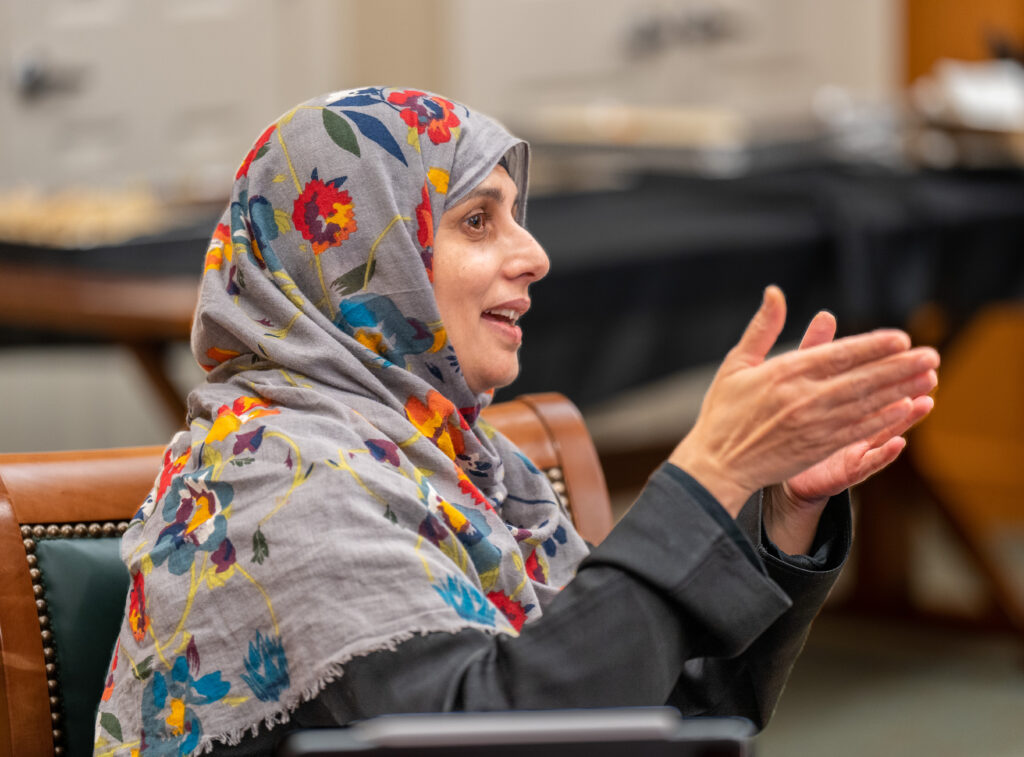
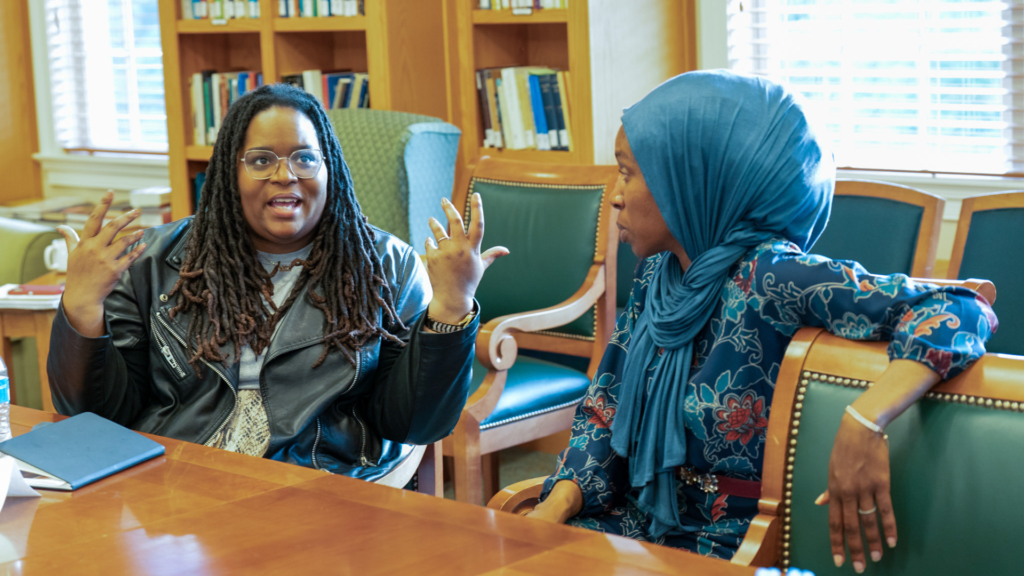
Coming Together as a Community of Believers
“If we could somehow invigorate a whole community of believers in this city to understand that the destiny of Baltimore is waiting for us all to come together…we could make some great changes in this city.“
—Leon F. Pinkett III, ICJS 2021 Justice Leader Fellow
Funding Partners

Additional funding from the David and Barbara B. Hirschorn Foundation.
Justice Leader Voices
Tzedakah, Charity, and Sadaqah: Justice in the Abrahamic religions
As someone who grew up in a Jewish household, within a Jewish community, who now spends my day-to-day job as a Jewish communal professional, I can admit that my knowledge of the Christian and Muslim faiths have been, up until this point, very minimal. Most of what I had previously known about these other two…
Bridging Baltimore’s Many Divides
My experience in the ICJS Justice Leaders Fellowship has prompted me to think deeply about economic justice issues in Baltimore and around the country. Prior to applying for this fellowship and being advised that economic justice was going to be the focus of the program, the topic about the digital divide came to mind. My…
The Building Blocks to Economic Justice
Interacting and engaging with peers and colleagues from other faiths has opened my eyes to a few issues. I realized that prejudice and bias exist not only towards Muslims, but also other groups. In many situations it manifests its ugly face as an outcome of unintentional ignorance and cultural baggage, influenced by media and societal…
The Tension of Religious Intolerance
I moved to Nigeria, my home country, immediately after I graduated from elementary school for my middle school years. My parents were unhappy with how quickly we were losing a sense of our Islamic language, and cultural identities. Upon our arrival in Nigeria, my sister and I were enrolled in a prestigious, all-girls, Catholic missionary…